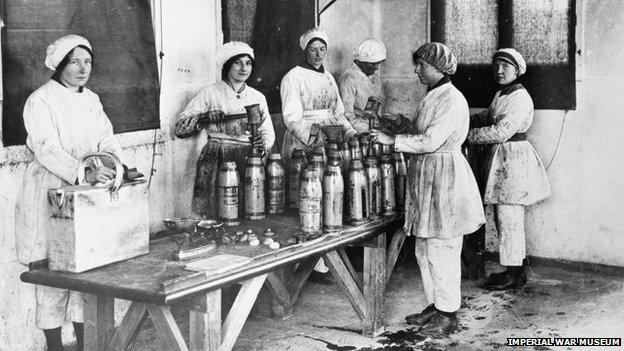Barnbow lasses: Man who saved 12 in explosion honoured in Leeds
- Published
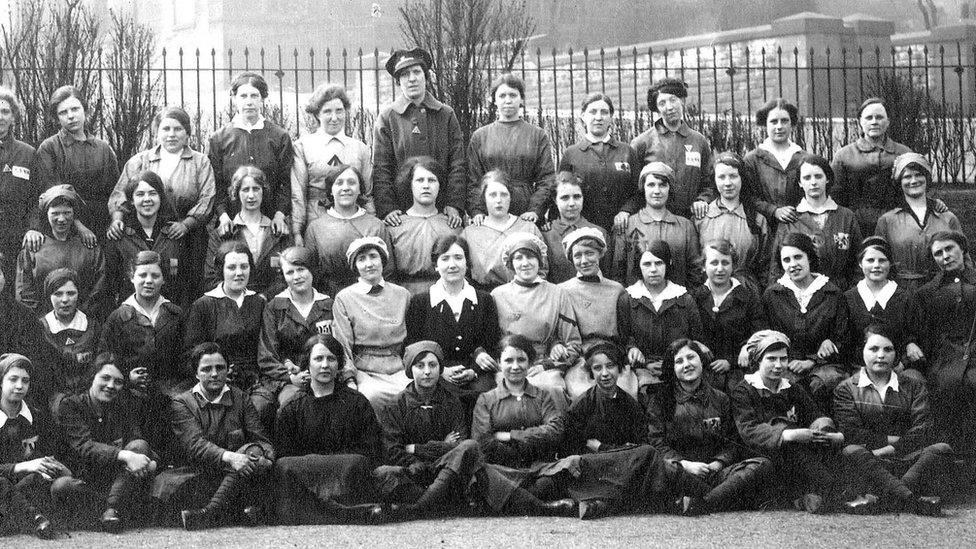
Women who worked at the munitions factory became known as the 'Barnbow Lasses'
A man who saved the lives of 12 women in an explosion at a World War One munitions factory has had a road and bridge in Leeds named after him.
William Parkin was a mechanic at the Barnbow Munitions factory in Crossgates, Leeds, when a shell exploded in Room 42 on 5 December 1916.
The accident killed 35 of the so-called "Barnbow Lasses", but Mr Parkin returned to pull 12 more to safety.
A plaque has now been unveiled at the site near Thorpe Park retail park.
Members of his family were at the ceremony and stories were told about the events of the night, after the plaque was unveiled by councillor Pauleen Grahame.
There were about 150 women and girls in the room when the explosion happened, at 22:27 as the night shift got under way.
More stories from around Yorkshire
With 35 dead and many more injured, men and women rushed into the room to try to bring the injured to safety.
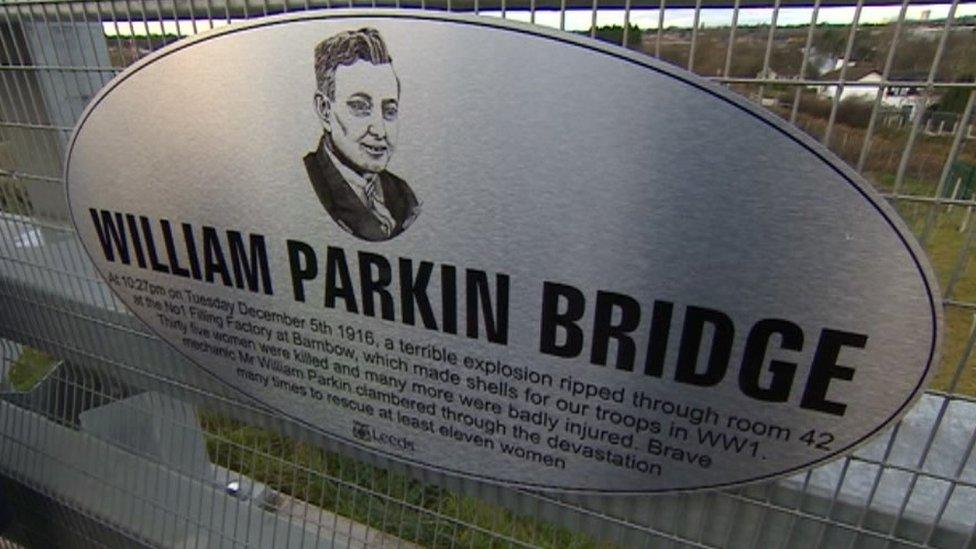
A plaque has been put up explaining the significance of the name William Parkin Bridge
Mr Parkin went in several times and brought 12 women out, only stopping when emergency services arrived.
His bravery was not officially recognised at the time, but he was presented with a silver watch by some of the survivors.
In 2016, the site of the factory was given heritage protection by the Department for Culture, Media and Sport, to recognise the role of women in the conflict.
William Parkin Way passes partially over the site of the shell-filling factory where information about the site has been placed.

The history of Barnbow
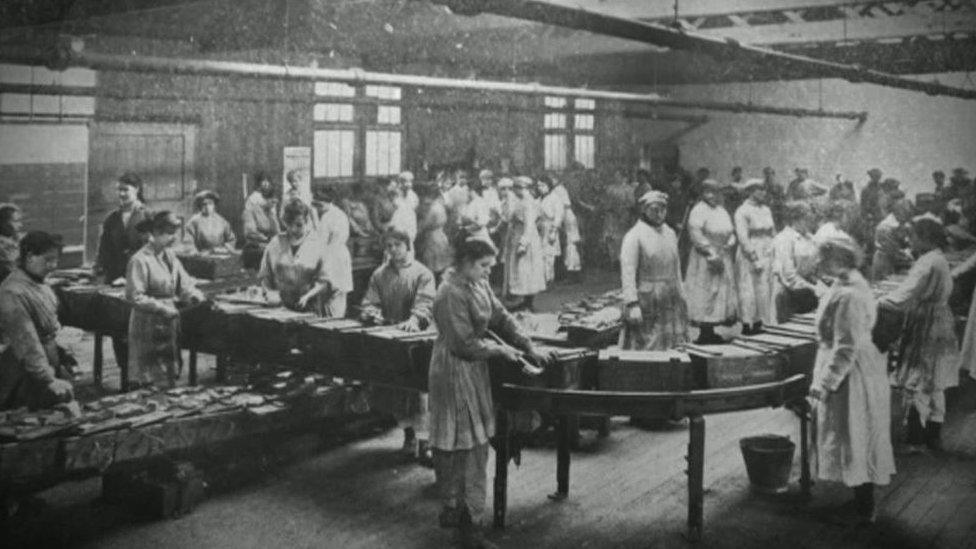
The explosion at Barnbow led to the single largest loss of life in the history of Leeds
When World War One broke out, there was unprecedented demand for ammunition and three businessmen found the site for the factory
It was built within three months and employed 17,000 workers, most of them women
Three separate explosions happened at the factory, but the most serious was the one on 5 December 1916
A further two women were killed on 21 March 1917 and three men lost their lives in a blast on 31 March 1918

Mike Parkin, William's grandson, was at the event and said: "It is emotional, my grandfather wasn't one for blowing his own trumpet, and what he did was instinct to him, to save the girls.
"It was a very destructive time but it is good that he is being recognised."
His great-great-granddaughter, Annabelle Babot, said: "What he did was amazing, it makes me feel really proud."
Follow BBC Yorkshire on Facebook, external, Twitter, external and Instagram, external. Send your story ideas to yorkslincs.news@bbc.co.uk, external.
- Published10 October 2016
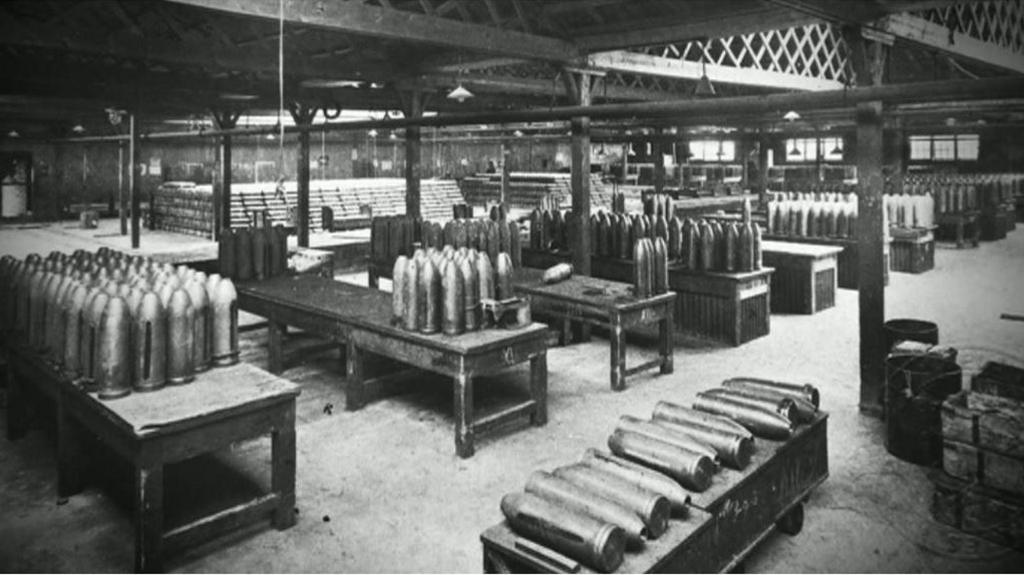
- Published21 June 2016
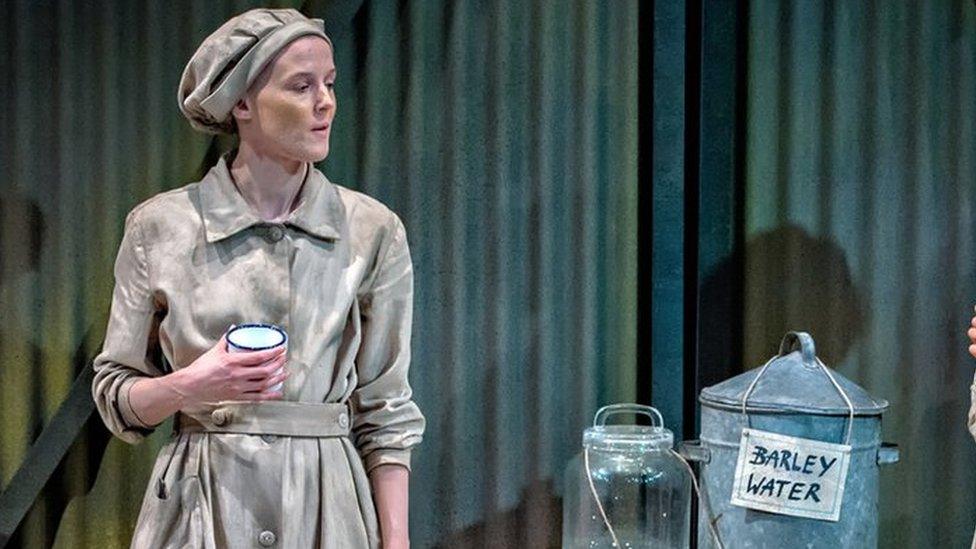
- Published2 June 2014
